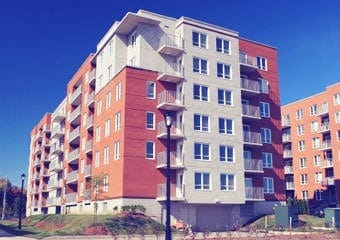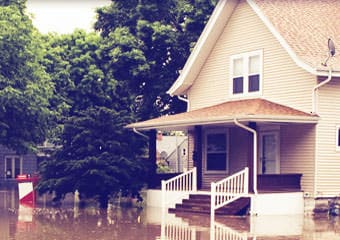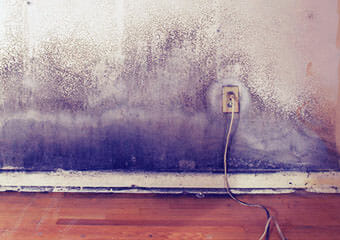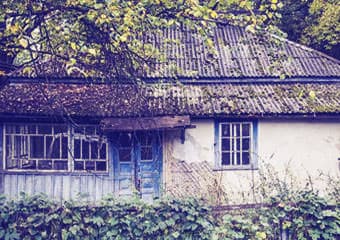Here’s What Your Homeowners Insurance Policy Includes
WE HAVE POLICIES FOR EVERY TYPE OF DWELLING!
If you live in it – we can probably insure it! We offer policies for Single Family homes, Duplex’s, Condominium units (or the entire association), and Renters too! Or as your situation changes we want to make sure we update your policy – for the new recreational room, finished basement, or new diamond ring!
WE HAVE POLICIES WITH GREAT RATES
We work with you to make sure that your home and personal belongings have the correct coverage you need to make sure you can make it through a disaster. Getting you the coverage you need for much less. We offer competitively priced with many different coverage options for every insurance need!
EXPERT ADVICE EXPLAINED SIMPLY
Policies can be confusing and we are here to help you understand the coverage for what can be your first place or your biggest investment! With so many policy forms (HO-4, HO-5, HO-6) and coverage forms (Broad form, named peril, actual cash value, or all risk) you need an experienced, professional agency that cares and will customize a policy for you. East Insurance Group.
CONTINUED COVERAGE & SERVICE
With East Insurance Group your policy is not just filed and stored away! We continue to update and enhance your policies with annual policy reviews. As new coverages become available we want to offer these enhancements! We review your needs annually – we talk about your family – we listen to your concerns and make the right recommendations! It’s more than just a policy to cover your dwelling or possessions – we’re part of your home.
HERE’S THE HOMEOWNERS COVERAGE WE PROVIDE
PROTECT YOUR ASSETS WITH HOMEOWNERS INSURANCE

Renters

Theft & Burglary

Personal Contents

Flooding

Mold

HOMEOWNERS COVERAGE FAQ
What is homeowners insurance?
A homeowners’ insurance policy covers both property and liability. It is a total financial plan that protects your home, personal property, and personal liability. It is designed to pay for damages to your home and its contents. It can also protect you from financial liability if someone is injured on your property. A homeowners’ insurance policy also protects you and your possessions when you are away from home. Basically, it extends to all your possessions no matter where you are.
Although most homeowners’ insurance policies are standardized throughout the United States, there are different policies sold through hundreds of insurance companies. Most policies cover damage to both the structure of your home, as well as personal property, caused by many natural disasters, including fire, lightening, hail, explosions, smoke, theft, and falling objects. Since most everything is covered in homeowners’ insurance, it is more important to understand what is not covered. The only standard catastrophes that are not covered in a homeowners’ insurance policy are floods and earthquake damage.
To determine how much loss has occurred, the insurance company may use one of the following two most common methods — actual cash value and replacement coverage. Actual cash value is the cost of replacing damaged or destroyed property with comparable new property, minus depreciation. Replacement coverage is the cost of replacing an item with one of the same kind and quality, equivalent to the actual cash value, minus physical depreciation. The objective is to place the insured in the same financial position after a loss as prior to it. If your policy does not already include replacement coverage, you can add this to your policy for an increase in premium payments. Call your insurance company or specialist for more information.
Homeowners’ insurance only covers the structure of your home, not the land on which it stands. Therefore, your policy should be for the value of your home.
What Does Homeowners Insurance Cover ?
A homeowners’ insurance policy covers both property and liability. It is a total financial plan that protects your home, personal property, and personal liability. It is designed to pay for damages to your home and its contents. It can also protect you from financial liability if someone is injured on your property. A homeowners’ insurance policy also protects you and your possessions when you are away from home. Basically, it extends to all your possessions no matter where you are.
Although most homeowners’ insurance policies are standardized throughout the United States, there are different policies sold through hundreds of insurance companies. Most policies cover damage to both the structure of your home, as well as personal property, caused by many natural disasters, including fire, lightening, hail, explosions, smoke, theft, and falling objects. Since most everything is covered in homeowners’ insurance, it is more important to understand what is not covered. The only standard catastrophes that are not covered in a homeowners’ insurance policy are floods and earthquake damage.
To determine how much loss has occurred, the insurance company may use one of the following two most common methods — actual cash value and replacement coverage. Actual cash value is the cost of replacing damaged or destroyed property with comparable new property, minus depreciation. Replacement coverage is the cost of replacing an item with one of the same kind and quality, equivalent to the actual cash value, minus physical depreciation. The objective is to place the insured in the same financial position after a loss as prior to it. If your policy does not already include replacement coverage, you can add this to your policy for an increase in premium payments. Call your insurance company or specialist for more information.
Homeowners’ insurance only covers the structure of your home, not the land on which it stands. Therefore, your policy should be for the value of your home.
IS HOMEOWNERS INSURANCE MANDATORY?
As opposed to owning a car, most states don’t require you to have homeowners insurance if you legally own a home. However, if the home was financed with a mortgage, most lenders require insurance. The mortgage company will likely require that you have an adequate amount of insurance to cover the repair or rebuilding of the house in the event it is damaged.
Any supplemental coverage for possessions is optional, and if the mortgage is small, homeowners may only be required to buy insurance that covers the lender’s share of the property.
What Does Homeowners Insurance Cover ?
As a homeowner you face many risks evey day. A homeowners policy covers you from losses from damages such as, theft, burglary, storms, and fire as well as personal liability issues. Other issues such as flooding or earthquakes need separate policies, since these disasters are not included in home insurance.
Also included is home liability coverage which protects you in case someone is injured on your property or you are responsible for damage to someone else’s property. Your homeowners insurance can even protect you against injury you cause to another person off-premises under certain circumstances.
Are personal belongings covered?
While home insuranc covers your home and will reall yhelp in the event of a major disatster, it won’t cover many of your personal items that would be lost. Depending upon the type and amount of coverage you get in the policy, personal items may not be covered, or may only be covered up to a depreciated value.
Many home owners assume that all of their belongings are fully covered until they experience a loss. When choosing the amount of personal property coverage you want for your belongings, consider what it would cost to replace all of your personal items after a total loss from a fire.
WHAT OUR CLIENTS SAY
Don’t take our word for it, see what some of our clients have to say


